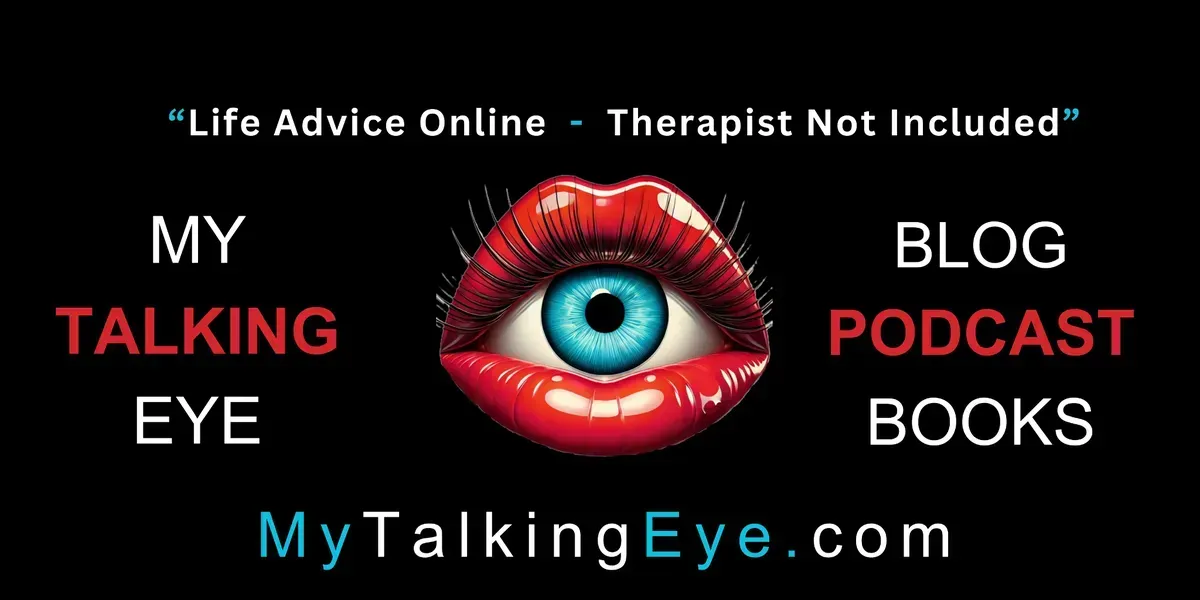

Wisdom in Grief
Wisdom in Grief: How Loss Transforms Our Perspective
Fifth and final entry in the "Depths of Grief" blog series
There's a dividing line in life—before loss and after loss. Those who haven't crossed it and those who have. Once you've stepped over that threshold, you never see the world the same way again.
This final post isn't about the pain of grief—though that remains—but about the perspective that emerges when you've lived with profound loss for a significant time. The view from this side of grief is different. Not better, not worse, just fundamentally altered in ways both challenging and illuminating.
The Veil Becomes Thinner
Perhaps the most immediate change is the recognition of life's fragility. Before significant loss, most of us live with the comfortable illusion that we have time, that our loved ones will be there tomorrow, that the world is generally stable and predictable.
Grief strips away that illusion permanently. The veil between life and death becomes gossamer thin. You become acutely aware that everything you love could vanish in an instant.
This awareness can be terrifying. But it also offers a curious kind of clarity. When you truly understand how fleeting life is, you begin to see with sharper eyes:
The mundane becomes sacred
Small kindnesses take on greater significance
Time with loved ones becomes precious in a way it wasn't before
Sunsets, children's laughter, the feeling of rain—all are experienced more fully
There's a heightened quality to existence after loss—a recognition that nothing is guaranteed, and therefore everything is a gift.
The Great Sorting
Loss initiates what I've come to think of as "the great sorting"—a fundamental reordering of what matters and what doesn't.
Arguments over parking spaces, worries about social media likes, concerns about status symbols—these trivial matters that once occupied so much mental space are revealed for what they are. In their place comes a laser focus on what actually matters: connection, love, meaning, presence.
This sorting isn't a one-time event. It's an ongoing process of asking: "Given that life is finite and fragile, is this worth my time and energy?" The answer frequently surprises you, upending priorities you've held for decades.
The Fellowship of the Wounded
There's a recognition that passes between people who have experienced profound loss—a look, a nod, an understanding that needs no words. You begin to identify others who have crossed that threshold, who know what it means to have the foundations of their world shattered and then to build something new among the ruins.
I've come to think of this as "the fellowship of the wounded"—a connection that transcends the usual social boundaries. You might have nothing else in common with someone, but the shared experience of surviving devastating loss creates an immediate bond.
This fellowship offers a unique kind of comfort. Not the comfort of "everything will be okay," but the deeper comfort of "I see your pain, I've felt it too, and I'm still here."
Compassion Expands, Judgment Recedes
One of the most profound transformations grief can offer is an expansion of compassion. When you've experienced how quickly life can unravel, how pain can alter your behavior and capabilities, you become slower to judge others' struggles.
You understand that everyone you meet is fighting battles you know nothing about. The irritable cashier, the distracted colleague, the friend who keeps canceling plans—all might be navigating losses or challenges that aren't visible on the surface.
This doesn't mean you become a doormat or lose your discernment. But your first response tends to shift from judgment to curiosity and compassion. You offer others the grace you needed when you were at your lowest.
The Courage to Live Authentically
When death has taken someone you love, the threat of social disapproval loses much of its power. You've survived the worst already; what's a little judgment or criticism compared to that?
This fearlessness often manifests as a new commitment to authenticity:
Speaking truth even when it's uncomfortable
Setting boundaries without guilt
Pursuing what brings genuine meaning rather than what looks good
Loving more openly and taking more risks with your heart
Discarding roles and expectations that no longer fit
There's a quiet strength in knowing you've endured what once seemed unbearable. This knowledge becomes a foundation upon which you can build a more authentic life.
The Mystery Becomes Comfortable
Before significant loss, many of us avoid thinking about death. We push it to the margins of our consciousness, treat it as taboo, or try to control it through various belief systems.
After loss, death becomes a familiar presence. Not necessarily welcome, but no longer alien. The great mystery of what happens when we die becomes something you can sit with, contemplate, even find a strange comfort in exploring.
This doesn't mean you have answers. But the questions themselves become less threatening, more interesting. Your relationship with mortality shifts from fear to a more complex, nuanced engagement with the greatest human mystery.
Time Becomes More Precious and Less Linear
Our cultural understanding of time is largely linear—moving forward, always forward, with the past left behind. Grief reveals this as an inadequate model for human experience.
In grief, time becomes more circular, more layered. The past isn't simply "over"; it continues to live within us, influencing our present and future. Our loved ones aren't just "gone"; they continue to participate in our lives through memory, through the ways they've shaped us, through the ongoing relationship we maintain with them.
This perspective often leads to a deeper appreciation for the time we have:
Less focus on productivity, more on presence
Greater awareness of how you spend your hours and with whom
A recognition that even mundane moments are never truly ordinary
Less willingness to waste time on activities or relationships that don't nurture your soul
The Capacity to Hold Opposites
Perhaps the most profound wisdom grief offers is the capacity to hold opposite truths simultaneously:
Life is unbearably painful AND unutterably beautiful
We are incredibly fragile AND remarkably resilient
Loss is permanent AND love continues
The world can be cruel AND people can be extraordinarily kind
We are ultimately alone AND fundamentally connected
This ability to embrace paradox without trying to resolve it into neat, tidy answers marks a kind of spiritual and emotional maturity. Not the untroubled faith of someone who has never questioned, but the hard-won wisdom of someone who has walked through darkness and emerged with a more textured understanding of light.
The Ongoing Journey
If you've been following this blog series from the beginning, you've witnessed the arc of grief—from the raw, disorienting early days through the complex process of rebuilding a life around an absence. But this isn't a story with a neat conclusion. There's no "getting over it," no final stage where grief is completely resolved.
Instead, there's the ongoing integration of loss into the continuing story of your life. There are still hard days, still moments when the pain feels as fresh as it did in the beginning. But there's also the growing capacity to carry that pain without being defined by it, to honor what was lost while still embracing what remains.
What Remains
And what does remain, when all is said and done?
Love remains. Changed, transformed, but undiminished.
Memory remains. Not perfect, not complete, but precious.
Connection remains. Not only to those we've lost, but to all those who share this fragile human experience.
And you remain. Different than you were before, carrying scars that will never fully heal, but also carrying a depth and wisdom that only comes from having loved deeply enough to grieve deeply.
A Final Word
As we conclude this series, I want to acknowledge you, the reader who has walked this path with me. Whether you came to these words in the raw early days of loss, or from the perspective of years lived with grief, I hope you've found something here that speaks to your experience, that helps you feel less alone.
Grief is the price we pay for love, and it's a price none of us would choose to pay. But having paid it, we can choose how we carry it forward—not as a burden that diminishes us, but as a testament to the depth of our capacity to connect, to care, to continue.
May you find peace, not in the absence of grief, but in its integration into a life that remains rich with meaning, connection, and yes, even joy.
Thank you for journeying with me through this exploration of grief's depths. While this concludes our formal series, grief itself doesn't conclude—it evolves, shifts, transforms. May your own journey, whatever stage you're in, lead you toward healing that honors both your loss and your continuing life.
For ongoing support, consider resources like GriefShare (griefshare.org), which offers local support groups, or Refuge in Grief (refugeingrief.com), which provides online community and courses for those navigating loss.

Wisdom in Grief
Wisdom in Grief: How Loss Transforms Our Perspective
Fifth and final entry in the "Depths of Grief" blog series
There's a dividing line in life—before loss and after loss. Those who haven't crossed it and those who have. Once you've stepped over that threshold, you never see the world the same way again.
This final post isn't about the pain of grief—though that remains—but about the perspective that emerges when you've lived with profound loss for a significant time. The view from this side of grief is different. Not better, not worse, just fundamentally altered in ways both challenging and illuminating.
The Veil Becomes Thinner
Perhaps the most immediate change is the recognition of life's fragility. Before significant loss, most of us live with the comfortable illusion that we have time, that our loved ones will be there tomorrow, that the world is generally stable and predictable.
Grief strips away that illusion permanently. The veil between life and death becomes gossamer thin. You become acutely aware that everything you love could vanish in an instant.
This awareness can be terrifying. But it also offers a curious kind of clarity. When you truly understand how fleeting life is, you begin to see with sharper eyes:
The mundane becomes sacred
Small kindnesses take on greater significance
Time with loved ones becomes precious in a way it wasn't before
Sunsets, children's laughter, the feeling of rain—all are experienced more fully
There's a heightened quality to existence after loss—a recognition that nothing is guaranteed, and therefore everything is a gift.
The Great Sorting
Loss initiates what I've come to think of as "the great sorting"—a fundamental reordering of what matters and what doesn't.
Arguments over parking spaces, worries about social media likes, concerns about status symbols—these trivial matters that once occupied so much mental space are revealed for what they are. In their place comes a laser focus on what actually matters: connection, love, meaning, presence.
This sorting isn't a one-time event. It's an ongoing process of asking: "Given that life is finite and fragile, is this worth my time and energy?" The answer frequently surprises you, upending priorities you've held for decades.
The Fellowship of the Wounded
There's a recognition that passes between people who have experienced profound loss—a look, a nod, an understanding that needs no words. You begin to identify others who have crossed that threshold, who know what it means to have the foundations of their world shattered and then to build something new among the ruins.
I've come to think of this as "the fellowship of the wounded"—a connection that transcends the usual social boundaries. You might have nothing else in common with someone, but the shared experience of surviving devastating loss creates an immediate bond.
This fellowship offers a unique kind of comfort. Not the comfort of "everything will be okay," but the deeper comfort of "I see your pain, I've felt it too, and I'm still here."
Compassion Expands, Judgment Recedes
One of the most profound transformations grief can offer is an expansion of compassion. When you've experienced how quickly life can unravel, how pain can alter your behavior and capabilities, you become slower to judge others' struggles.
You understand that everyone you meet is fighting battles you know nothing about. The irritable cashier, the distracted colleague, the friend who keeps canceling plans—all might be navigating losses or challenges that aren't visible on the surface.
This doesn't mean you become a doormat or lose your discernment. But your first response tends to shift from judgment to curiosity and compassion. You offer others the grace you needed when you were at your lowest.
The Courage to Live Authentically
When death has taken someone you love, the threat of social disapproval loses much of its power. You've survived the worst already; what's a little judgment or criticism compared to that?
This fearlessness often manifests as a new commitment to authenticity:
Speaking truth even when it's uncomfortable
Setting boundaries without guilt
Pursuing what brings genuine meaning rather than what looks good
Loving more openly and taking more risks with your heart
Discarding roles and expectations that no longer fit
There's a quiet strength in knowing you've endured what once seemed unbearable. This knowledge becomes a foundation upon which you can build a more authentic life.
The Mystery Becomes Comfortable
Before significant loss, many of us avoid thinking about death. We push it to the margins of our consciousness, treat it as taboo, or try to control it through various belief systems.
After loss, death becomes a familiar presence. Not necessarily welcome, but no longer alien. The great mystery of what happens when we die becomes something you can sit with, contemplate, even find a strange comfort in exploring.
This doesn't mean you have answers. But the questions themselves become less threatening, more interesting. Your relationship with mortality shifts from fear to a more complex, nuanced engagement with the greatest human mystery.
Time Becomes More Precious and Less Linear
Our cultural understanding of time is largely linear—moving forward, always forward, with the past left behind. Grief reveals this as an inadequate model for human experience.
In grief, time becomes more circular, more layered. The past isn't simply "over"; it continues to live within us, influencing our present and future. Our loved ones aren't just "gone"; they continue to participate in our lives through memory, through the ways they've shaped us, through the ongoing relationship we maintain with them.
This perspective often leads to a deeper appreciation for the time we have:
Less focus on productivity, more on presence
Greater awareness of how you spend your hours and with whom
A recognition that even mundane moments are never truly ordinary
Less willingness to waste time on activities or relationships that don't nurture your soul
The Capacity to Hold Opposites
Perhaps the most profound wisdom grief offers is the capacity to hold opposite truths simultaneously:
Life is unbearably painful AND unutterably beautiful
We are incredibly fragile AND remarkably resilient
Loss is permanent AND love continues
The world can be cruel AND people can be extraordinarily kind
We are ultimately alone AND fundamentally connected
This ability to embrace paradox without trying to resolve it into neat, tidy answers marks a kind of spiritual and emotional maturity. Not the untroubled faith of someone who has never questioned, but the hard-won wisdom of someone who has walked through darkness and emerged with a more textured understanding of light.
The Ongoing Journey
If you've been following this blog series from the beginning, you've witnessed the arc of grief—from the raw, disorienting early days through the complex process of rebuilding a life around an absence. But this isn't a story with a neat conclusion. There's no "getting over it," no final stage where grief is completely resolved.
Instead, there's the ongoing integration of loss into the continuing story of your life. There are still hard days, still moments when the pain feels as fresh as it did in the beginning. But there's also the growing capacity to carry that pain without being defined by it, to honor what was lost while still embracing what remains.
What Remains
And what does remain, when all is said and done?
Love remains. Changed, transformed, but undiminished.
Memory remains. Not perfect, not complete, but precious.
Connection remains. Not only to those we've lost, but to all those who share this fragile human experience.
And you remain. Different than you were before, carrying scars that will never fully heal, but also carrying a depth and wisdom that only comes from having loved deeply enough to grieve deeply.
A Final Word
As we conclude this series, I want to acknowledge you, the reader who has walked this path with me. Whether you came to these words in the raw early days of loss, or from the perspective of years lived with grief, I hope you've found something here that speaks to your experience, that helps you feel less alone.
Grief is the price we pay for love, and it's a price none of us would choose to pay. But having paid it, we can choose how we carry it forward—not as a burden that diminishes us, but as a testament to the depth of our capacity to connect, to care, to continue.
May you find peace, not in the absence of grief, but in its integration into a life that remains rich with meaning, connection, and yes, even joy.
Thank you for journeying with me through this exploration of grief's depths. While this concludes our formal series, grief itself doesn't conclude—it evolves, shifts, transforms. May your own journey, whatever stage you're in, lead you toward healing that honors both your loss and your continuing life.
For ongoing support, consider resources like GriefShare (griefshare.org), which offers local support groups, or Refuge in Grief (refugeingrief.com), which provides online community and courses for those navigating loss.
